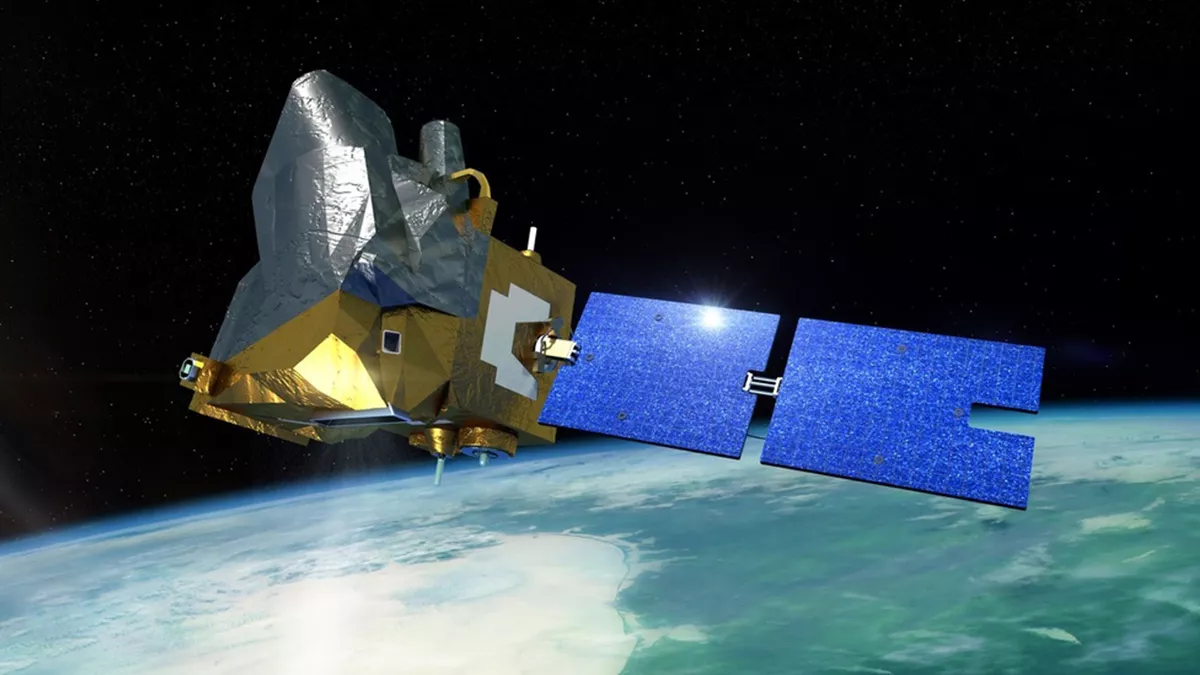
News and Media

MicroCarb Launches–New Carbon Monitoring Mission Showcases NCEO Expertise

A new satellite designed to monitor atmospheric carbon dioxide (CO2) with key contributions from UK scientists at NCEO has successfully launched
On Saturday, July 26, the MicroCarb satellite successfully launched aboard a Vega-C rocket from Kourou in French Guiana. This marks a major milestone for Europe’s first dedicated CO₂ monitoring satellite, a collaborative mission between the UK Space Agency (UKSA) and the French space agency (CNES).
MicroCarb will join the international greenhouse gas (GHG) virtual constellation of satellites, significantly enhancing global climate monitoring capabilities. It will improve our understanding of how CO₂ moves between the Earth’s surface and the atmosphere — so-called carbon fluxes — including emissions from cities and other human sources. The satellite will also track how much CO₂ is absorbed by natural systems like forests and oceans, addressing one of the biggest uncertainties in climate science.
MicroCarb is a great example of how we can work internationally with our partners and make the best use of UK expertise to do exciting science that helps us better understand how our planet is changing.”
Dr Robert Parker
Member of the MicroCarb Mission Advisory Group and NCEO Research Fellow based at the University of Leicester.
Backed by a £15 million investment from the UK Space Agency, the mission strengthens Britain’s position as a global leader in both climate science and space technology. MicroCarb will orbit 650km above Earth, using revolutionary city-scanning technology to map CO₂ emissions across urban areas at an unprecedented 2km x 2km resolution — a level of detail never before achieved from space. This capability is vital for understanding emissions from cities, which are responsible for over 70% of global CO₂ output.
UK Expertise at the Heart of MicroCarb
UK scientists and industry have played a central role in the development and delivery of the MicroCarb mission.
NCEO scientists at the Universities of Edinburgh and Leicester have been involved in designing the mission and will now use data from the satellite to infer global CO₂ sources and sinks using cutting-edge statistical methods.
MicroCarb will also detect solar-induced fluorescence (SIF) — a faint glow emitted by plants during photosynthesis. This signal, captured by onboard spectrometers, acts as a powerful indicator of plant health and carbon uptake, supporting applications from crop monitoring to drought risk assessment.
“MicroCarb is the latest generation of crucial CO₂ monitoring satellite missions. With unique viewing modes, a novel overpass time, and lightweight design, it comes at a critical time as nations prepare for the 2028 Global Stocktake under the Paris Agreement. Its SIF observations will significantly enhance our understanding of carbon uptake and the Earth’s biosphere.”
Dr Michael Cartwright
University of Leicester and NCEO
The SIF retrieval algorithm used by MicroCarb was developed by researchers at University of Leicester, while the mission’s overall CO₂ flux analysis is being led by NCEO’s Professor Paul Palmer, UK Lead MicroCarb Scientist, based at the University of Edinburgh.
Data from MicroCarb will play a crucial role in extending our current ability to verify reductions in global and national emissions of CO2 in response to the demands of the Paris Agreement.”
Professor Paul Palmer
UK Lead MicroCarb Scientist and NCEO Science Director based at the University of Edinburgh
The National Physical Laboratory (NPL) provided the SI-traceable ground calibration facility to test the satellite’s performance before launch. NPL’s Paul Green is also working with the MicroCarb team to develop algorithms and quality metrics to ensure the accuracy of the data.
Thales Alenia Space in the UK were responsible for preparing Microcarb for launch and completed the satellite’s assembly, integration, and test activities at the Science and Technology Facilities Council’s RAL Space in Harwell. RAL Space also developed the pointing and calibration system that enables MicroCarb to take precise measurements at specific locations.
GMV UK, in collaboration with France’s Capgemini, is designing, implementing, and quality-assuring algorithms and operational processors for several of MicroCarb’s CO₂ data products, ensuring robust and reliable data delivery.
Supporting Global Climate Goals
By providing high-resolution measurements of carbon dioxide and plant activity, MicroCarb will directly support international efforts to monitor and mitigate climate change, including the upcoming 2028 Paris Agreement Global Stocktake.
The UK’s involvement in MicroCarb is further supported through GEMINI‑UK,[SS1] a national network of ground-based observations coordinated by NCEO scientists, which will validate the satellite’s measurements and ensure their accuracy.
Satellites like MicroCarb are our eyes in the sky. Over half of the critical data we use to understand climate change comes from space, and MicroCarb’s successful launch is a major leap forward in our ability to track carbon emissions and absorption with unprecedented accuracy, from the world’s cities to its forests and oceans.
Dr Paul Bate
“Backed by UK and French investment and expertise, it’s a proud moment for both our space sectors and a powerful example of international collaboration in action.”
Chief Executive of the UK Space Agency
MicroCarb is a significant leap forward in satellite-based climate monitoring and NCEO is proud to be playing a key role in its scientific success.
To learn more about the MicroCarb mission and NCEO’s role, click here
Share this article



Published by Fazila Patel
Digital Communications Officer
University of Leicester
Latest News and Events


